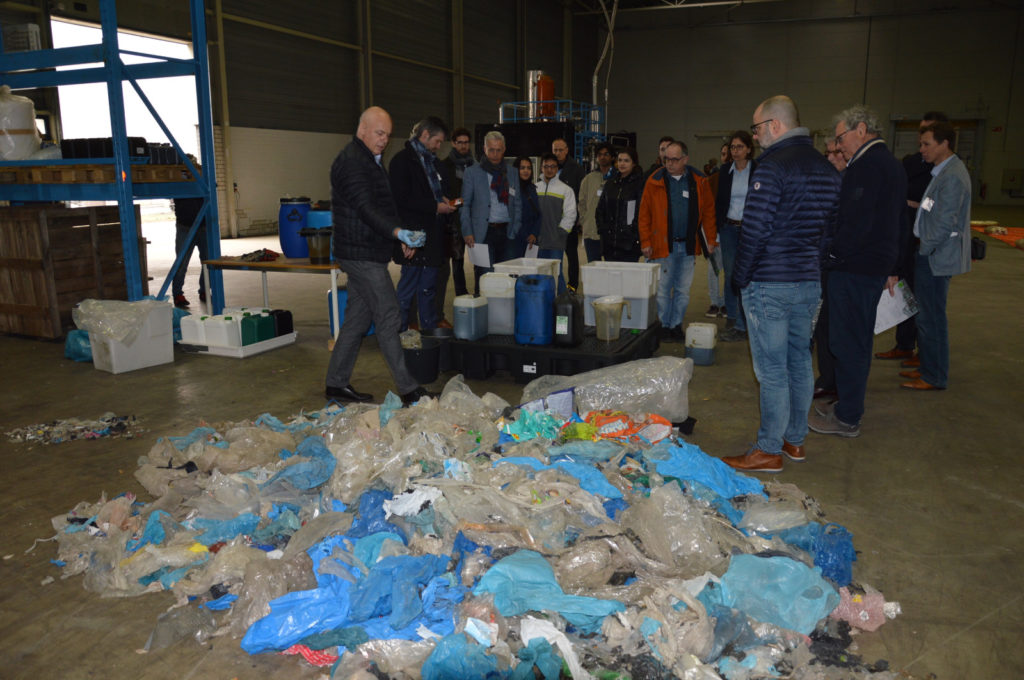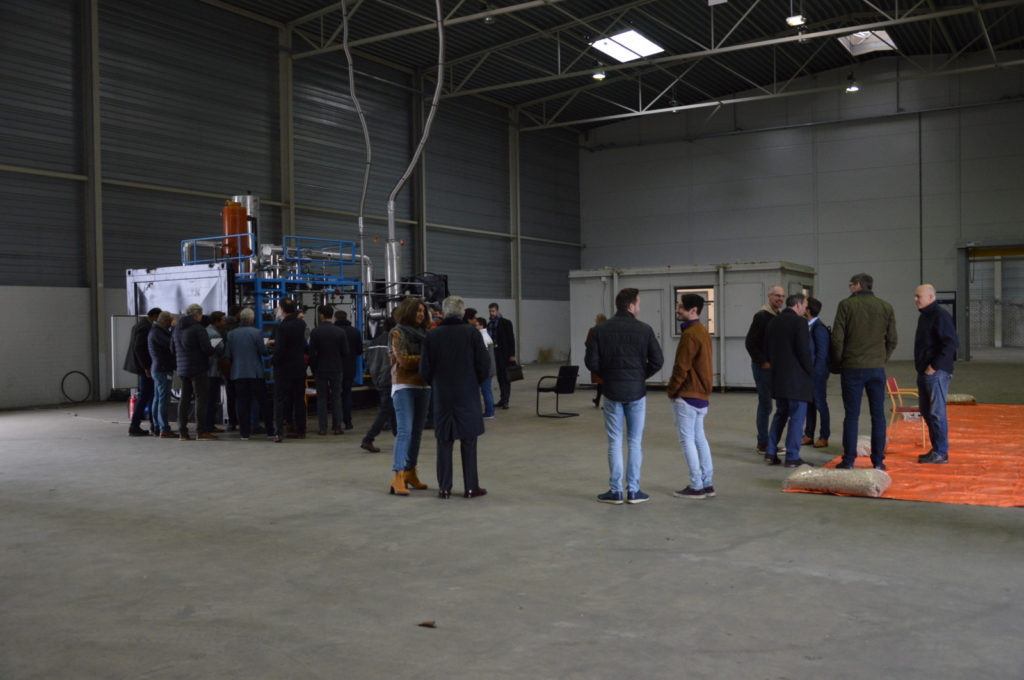The Plastic2Oil process takes place in a production company that converts waste plastics into its original raw material, 100% sulphur-free oil, using the pyrolysis system. Waste is collected locally by the people and they earn money with it. Local companies will also deliver their waste. Glass, paper, metal, etc. are generally collected because they have value. Plastics do not yet. By giving value to waste plastics, it will be picked up and returned. All these collected plastics are pyrolysed into usable oil. The output of this pyrolysis process is:
- Approximately 80% oil
- About 16% combustible gases with the following main components: methane and butane
- About 4% ash (in the form of a type of bitumen)
The core product is of course the oil. The gases released from this process as well as from the digestion pit(s) are compressed to 4BAR and used to maintain the pyrolysis furnace chambers at approx. 490°C (24/7/360). This requires about 82% of the gas obtained from the pyrolysis process. The remaining gas is used to drive a dynamo (gas engine) for the production of electricity.
Pyrolysis has been around for 100 years, and recently the technology has been developed to such an extent that plastics can now be processed into their original raw material in a fully continuous process on an industrial scale. This implies that with this technology, the plastic chain is definitively and 100% sustainably closed. We can now finally free the environment from the now suffocating mountains of waste plastics.
We prefer to start with a combination of a number of large producers of waste plastics and local people who currently have no income at all. We prefer to do this in Ghana, Africa, with a pilot plant that initially has a processing capacity of 50,000 kg of plastics per 24 hours. With this first plant, we start relatively small and immediately have turnover, a test, demo and training environment and the basis for expansion. We are looking for cooperation with the Ghanaian government, local authorities and companies that are major producers of waste plastics. There is also local interest in the produced oil. This oil is a semi-finished product and, on the one hand, the basis for new plastics and, on the other, for fuels such as petrol, diesel and jet fuel (paraffin).
With this process, the environment there is cleared of waste plastics, the local people at the bottom of society have work to do and also income and the profits from oil sales are used for further development of this group of people and expansion to more of these Plastic2Oil factories.
In the Netherlands, in the city of Moerdijk, there is a demo plant shown below. Here, batches of 50 kg of waste plastics can be processed into oil. The emission of waste gases can then also be measured, as can the quality of the oil and its chemical composition.



